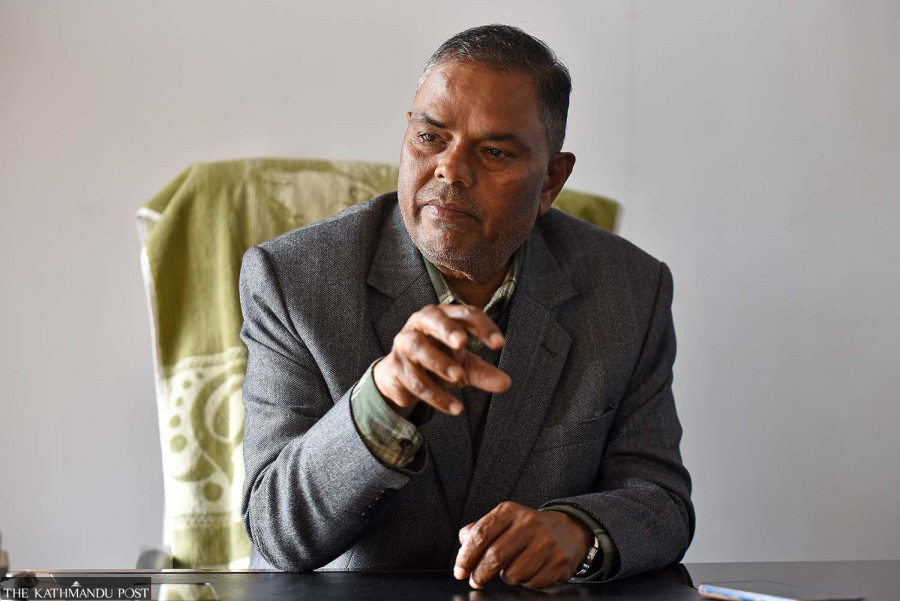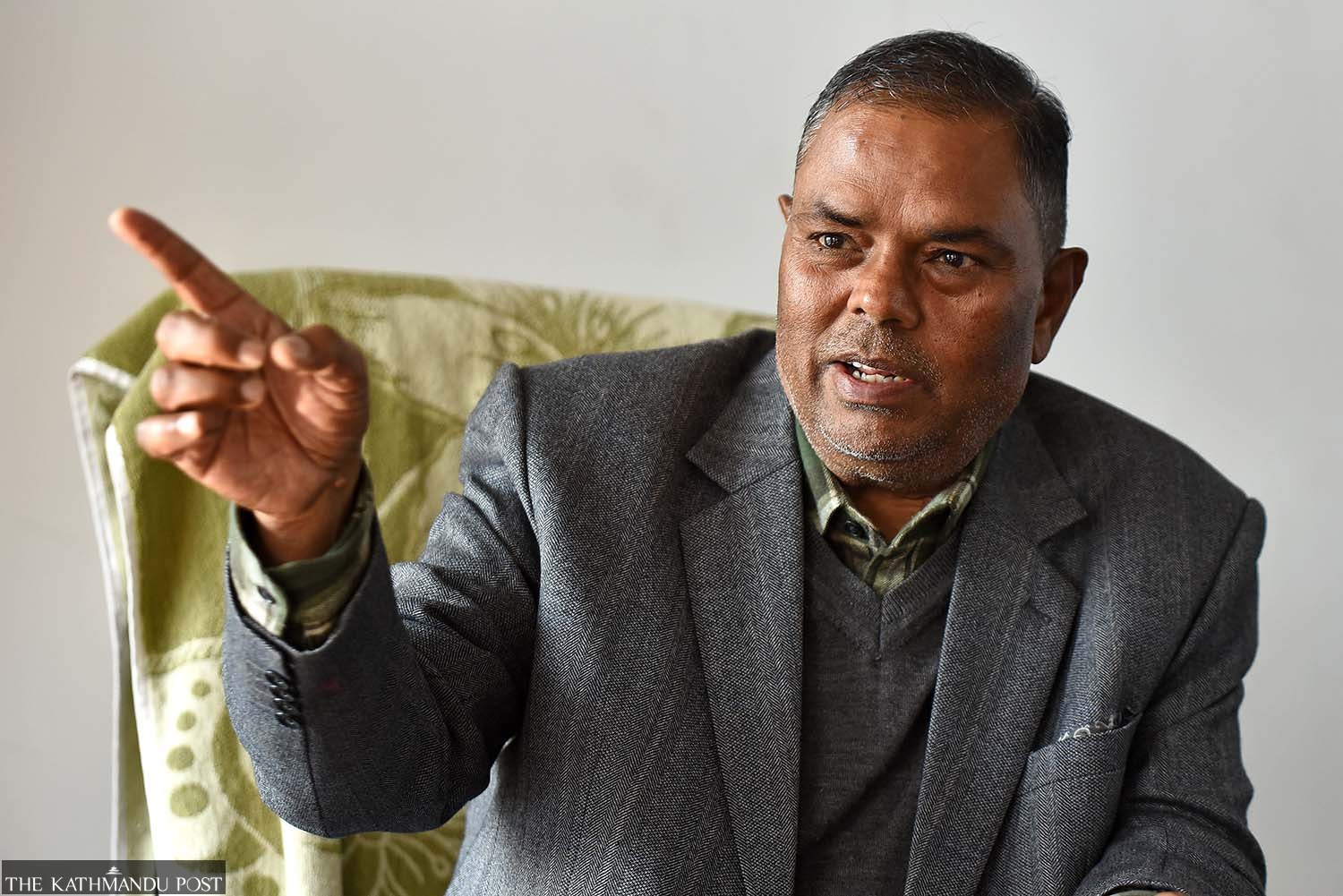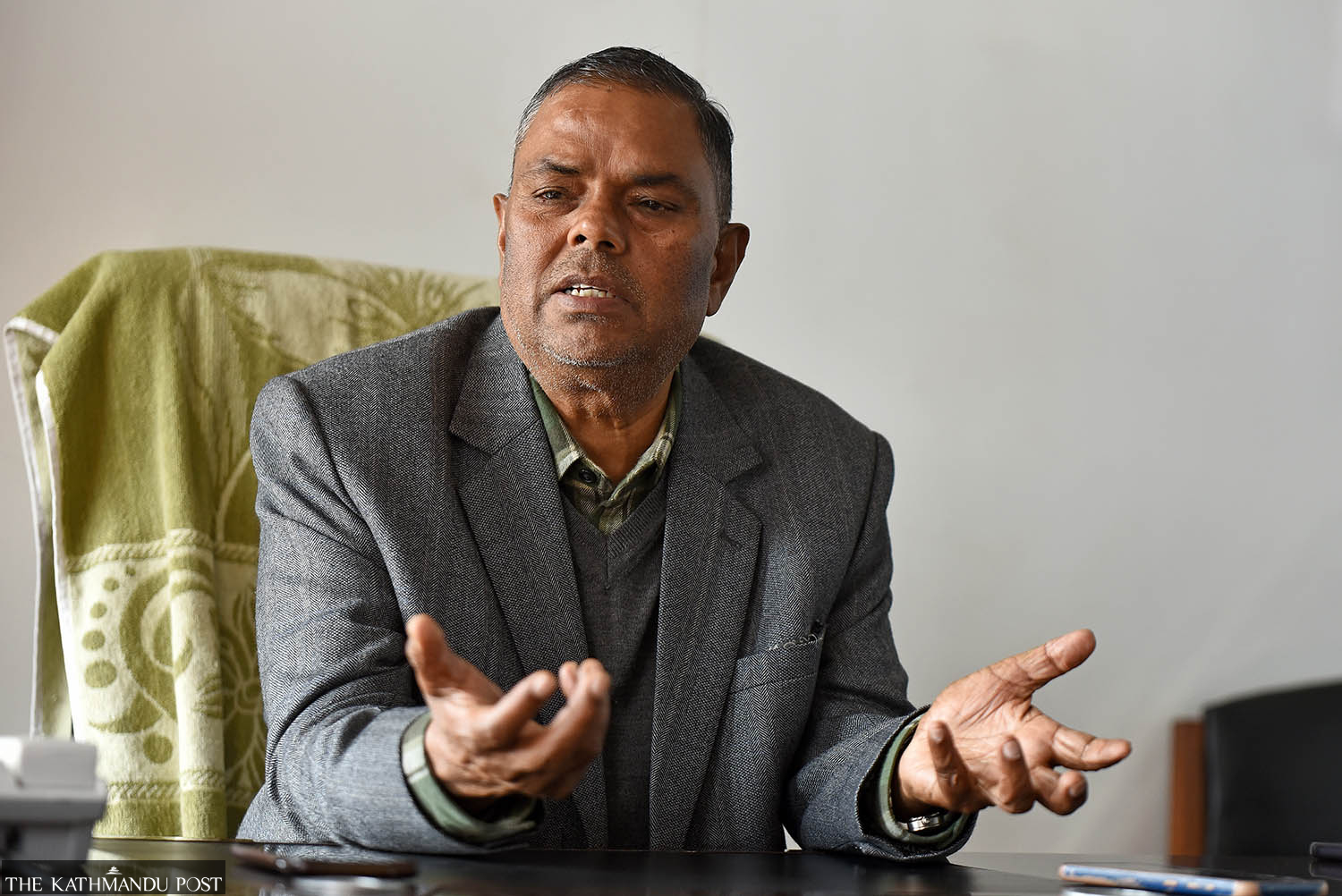Interviews
Empowered provinces can outperform the centre
Our provinces can’t work as they don’t even have civil servants and minimum resources. They cannot run with hands and legs tied.
Thira Lal Bhusal
Upendra Yadav, chairman of Janata Samajbadi Party Nepal, led the Madhesh uprising in 2007 that eventually heralded a federal Nepal. The new system however has been facing growing criticism, with the seven provinces taking the most flak. The Post’s Thira Lal Bhusal talked to former deputy prime minister Yadav on how he sees the provinces and their prospects.
To begin with, tell us what is the status of identity and regional politics in the country?
Nepal has always been a place of diversity, composed of multiple religions, ethnicities, cultures, languages and costumes, among other things. Different civilisations have been in the country since ancient times, for instance the Kirat civilisation in the eastern hills; Mithila, Kochila, Shakya and Awadh in the southern plains; Newa in Kathmandu Valley; and Tamuwan and Khasan in the western hills. Nepal is made up of all these communities which have their own heritages and identities. Nepal has never been a country of single caste, language, and religion. Diversity is the strength and beauty of this country.
The languages and cultures of the diverse communities, which are nationalities, should have been recognised and given impetus to flourish. They should have actively participated in the country’s socio-economic and political processes and felt proud of being involved in the nation-building process. The country would thus emerge stronger. It is the responsibility of the state to create the environment. Unfortunately, that couldn’t happen. The state promoted a single language, costume, and religion while other important civilisations were shadowed.
This caused a huge loss to the country as people from all Nepali nationalities couldn’t actively join the nation-building process. When all the communities are represented in the decision making process and get access to resources, they feel proud, take ownership of the process and strengthen the country. No country can progress by bypassing a large section of population. Moreover, if the diversity is not well-managed and is suppressed, it can invite conflicts.
Do you mean, we needed federalism for better management of the country’s diversity?
The centralised unitary system that Nepal practiced for long couldn’t recognise Nepal’s diversity. It didn’t allow communities to exercise self-rule as well. Nepal signed the UN's International Covenant on Economic, Social and Cultural Rights (ICESCR) in 1991 that allows communities to exercise self-rule but the state didn’t allow them to exercise the right. But this is possible in the federal system. In federalism, there is shared rule at the centre while provinces and local governments exercise self-rule. Sub-national governments resolve problems on their own. India’s states have been doing so for years. This helps cultivate patriotic feelings in communities across the country.
We have practiced federalism for nearly a decade. Do you think the federal system in Nepal has worked as intended?
Nepal’s federalism is only nominal, with no true characteristics of federalism. We have provinces but they were named and delineated in a wrong way. They are like administrative units. They don’t have authority, or laws and human resources required to govern.
What are the things the government can do under this constitution to strengthen provinces?
The long pending tasks of allowing provinces to deploy police and civil servants on their own should be completed. They can’t work effectively without resources and rights. The provinces were weakened from the time they were delineated and named.
People expected better delivery after the introduction of the federal system but provinces failed to meet the expectation. Does this have anything to do with their nomenclature and delivery?
It is related because identity is important. For instance, with the naming of Madhes province based on identity, everyone in the province now feels proud. They proudly say, “we are from Madhesh”. People would have similar feelings if there was a Kirat province. Kirat is a great civilisation from ancient times. Such is also the case with Mithila, Shakya, Khas, Tamuwan and Newa civilisation. The narrow-minded attitude should change. There are so many countries in Europe, Africa and various other regions that have made national unity stronger and progressed by adopting identity-based federalism also known as rainbow federalism.
Again, don’t you think our provinces could have served people better?
People’s expectation for better health, education and other basic services is valid. These are their basic needs and the state should fulfill them. But first the provinces should be made capable of doing these things. The centre didn’t work and it didn’t allow the provinces to work independently either. It’s the centre’s failure. In India, states like Maharashtra, Jharkhand, Kerala, UP and others have proven that states can do a lot on their own. But in Nepal, provinces have been deprived of authorities and criticised as ineffective. It’s like asking someone to run with their hands and legs tied up.

Madheshi people and leaders played the lead role in fighting for federalism and introducing the system in Nepal. Shouldn’t they be able to present Madhesh as an exemplary province?
In India, they have the Tamil Nadu model and Kerala model. The Kerala government has done some work that the centre couldn’t do and other states have done so as well. They worked excellently during Covid pandemic. It can be done in Nepal as well. But how can our provinces work when they don’t even have civil servants and minimum resources? In the absence of employees, they can’t even issue a tender. When a provincial minister demands 50 employees, the centre sends just three. Key positions like ministerial secretary remain vacant most of the time. How can politicians execute any task without staff? If these issues are addressed, provinces can do better than the centre in Nepal as well.
But people have started raising questions about the efficiency and relevance of the federal system.
The health sector has done comparatively better in service delivery as per the spirit of a federal system because when I was health minister I handed over the authority to the provinces. Hospitals, health and science institutions and other public health agencies are doing a far better job. They did a commendable job during the Covid pandemic as well. So, if you give them authority, they can perform. It all depends on whether those at the centre hold the power or delegate it to the provinces.
Madhesh and identity politics have been weakened by division and infighting. Even the recent initiative to form an alliance hasn’t gathered momentum. Why can’t Madhesi leaders get organised as a single force?
The leaders who were headed in different directions have now come together under an alliance (the Sanghiya Loktantrik Morcha) and have started discussions and discourse. This initiative in itself should be taken positively. It will gradually gather momentum.
Traditional forces appear to be increasing their influence in Madhesh and leaders such as Bijay Gachchhadar, Jitendra Narayan Dev, Raj Kumar Lekhi, to name a few, have rejoined big parties such as Nepali Congress and the CPN-UML. Don’t you think regional forces are losing influence in their own heartland?
They (the leaders named above) were never into identity politics. They joined the Madhesi parties under special circumstances just ahead of the first Constituent Assembly election. As an ideology, they never accepted it. In an underdeveloped country, people run after power, opportunities and money. Big parties can offer them big things and they are lured by that.
Those who were against the federal system have become more vocal citing the new system’s failure in delivery. The voice is becoming louder even within the Congress and the UML. How do you see this?
The Congress and the UML have been ruling the country for most of the past 35 years but Nepal has not progressed as per public expectation. Then should the people throw them away? Similarly, there is no point in blaming the federal system. Congress and communists were compelled to accept federalism only after the Madhesh uprising and to some extent Maoist insurgency. So it’s natural for them to oppose federalism.
As a champion of the federal system in Nepal, don’t you feel pressure in light of the growing anti-federalism sentiment?
The provinces are not given any authority to work. Their hands and legs are tied. The anti-federalists are powerful at the centre and have consolidated authority. They have to take responsibility for this situation. It’s not the failure of the system. Those who operated it wrongly are responsible.

What is your reading of the pro-monarchy forces’ movement?
A big portion of Nepal’s population have a strong faith in Hindu religion. It is an attempt to gain power by exploiting that sentiment. It is a misuse of people’s sentiment because politics should be based on economy and political agenda not religion. Politics guided by religion ultimately leads to destruction. Their main target is the republic, federalism and policy of inclusion. Now, the Congress and the UML should decide whether they want to protect the new system or help monarchists.
One thing people should be clear is that there is no need to link monarchy and Hindu religion. These two things should be seen differently. For instance, I am a Hindu and I feel proud of my religion and culture. But I believe in democratic republic and social justice. I can be a Hindu and republican socialist.
Your party JSP-Nepal supported the KP Oli government in the trust vote. But the government’s plan to endorse the land ordinance from parliament failed due to your party’s objection. It has again brought the land bill through regular process in the House. What will your party do now?
We supported this government after it committed to amend the constitution, improve the country’s economy and reform governance. But it introduced a land ordinance to serve the interests of land mafia and destroy forests. There was no point in supporting that. Also, the land bill registered in parliament is wrong.
What are its objectionable provisions?
It doesn’t address the problems of squatters and unmanaged settlers but serves the land mafia. It states that land will be provided to real estate companies who develop buildings and sell them. If the bill is endorsed as it is, it will destroy forests and ecology and the Tarai region will face desertification. In Itahari, land was distributed in the name of squatters. Now, six-storey buildings stand on the same land while squatters are still languishing on river banks and roadsides.
How do you see the emergence of new parties including the regional ones and their performance so far?
We should welcome new ideas, new leaders and new parties in politics. They may do things that we couldn’t. They are learning. It is too early to judge them.
Is there any chance of collaboration and unification with them?
Now we are trying to work in an alliance. If it works then we can think about unification as well.
But your past efforts of unifying parties have not succeeded. What’s the problem?
The oppressed class lack awareness. They struggle for livelihood and can do anything for certain opportunities and they get trapped. In politics, we create unity for a certain period but it doesn’t last.




 17.9°C Kathmandu
17.9°C Kathmandu












